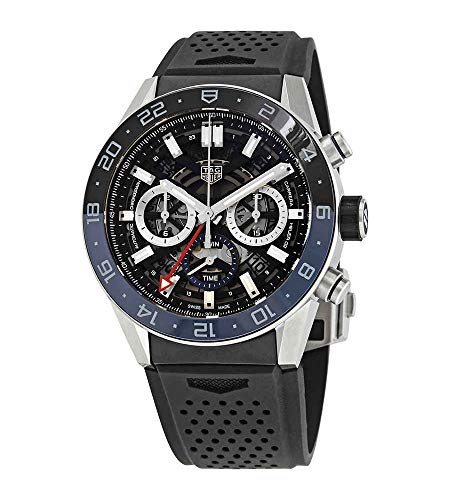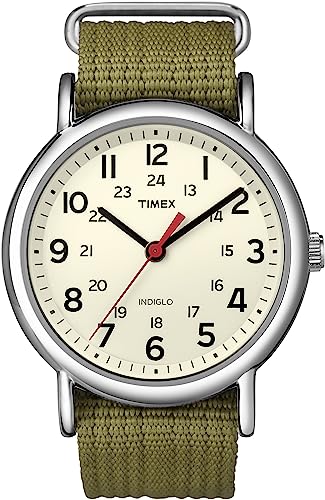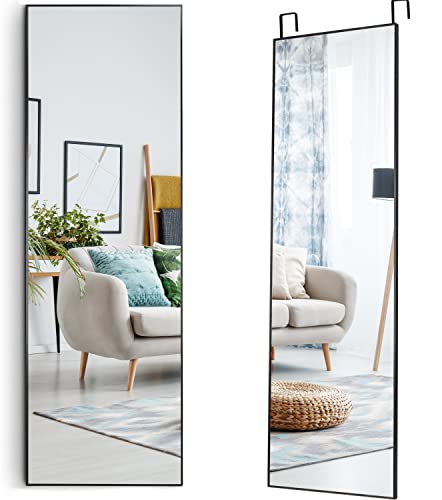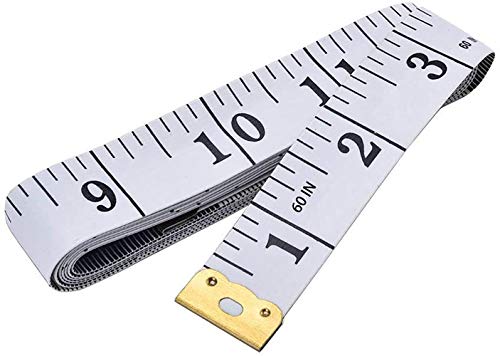In this step-by-step guide, we will help you find a designer watch that matches your personal style. Whether you prefer a classic or bold look, these steps will assist you in choosing the perfect timepiece.
Top-selling designer timepieces
Define your personal style
Start by understanding your personal style. Consider your clothing preferences, lifestyle, and the image you want to project. Think about whether you lean towards a sleek and minimalist design or if you prefer something bold and extravagant. For instance, if you tend to gravitate towards neutral colors and clean lines in your clothing choices, a simple and understated watch with a leather strap may align well with your style. On the other hand, if you are drawn to vibrant colors and unique patterns, a watch with a colorful dial or a statement piece with intricate detailing could be the perfect match.
To further identify your personal style, take a closer look at your lifestyle. If you lead an active and sporty lifestyle, a durable and water-resistant watch with functionalities like a chronograph or a fitness tracker would be practical and in line with your preferences. Conversely, if your lifestyle is more formal and elegant, a classic and refined timepiece with a stainless steel bracelet might be more suitable.
Consider the image you want to project when choosing a watch. If you aim to convey professionalism and sophistication, a traditional dress watch with a leather band and a simple yet elegant design will enhance your overall appearance. Alternatively, if you want to make a fashion-forward statement, opt for a trendy watch with unique features like a skeleton dial or an unconventional color combination.
By understanding your personal style, taking into account your clothing preferences, lifestyle, and desired image, you can narrow down your options and find a watch that complements your overall style. Remember to consider factors such as design, functionality, and materials to ensure your watch is a true reflection of your personal style.
Set your budget
To start your search for the perfect designer watch, it’s important to decide on a budget. Consider how much you are willing to invest in this accessory and set a clear limit. This will not only help you avoid overspending but also narrow down your search to watches that fall within your price range.
To determine your budget, take into account your personal financial circumstances and what you feel comfortable spending on a designer watch. Consider how often you plan to wear the watch and the value you expect to derive from it. For example, if you’re looking for a watch to wear on special occasions only, you might allocate a smaller budget compared to someone looking for an everyday timepiece.
Once you have your budget in mind, it’s time to start exploring different options that fit within your range. Remember, setting a budget doesn’t mean compromising on quality or style. Many reputable brands offer a range of watches at various price points, allowing you to find a watch that both meets your budget and satisfies your preferences.
By determining your budget upfront, you’ll avoid wasting time considering watches that are beyond your means. It will also help you prioritize your options and make a well-informed decision when choosing your designer watch. So, take a few moments to determine your budget and then dive into the exciting world of designer watches that perfectly align with your financial goals and style preferences.
Research different watch brands
- Explore Different Designer Watch Brands: Start by researching and exploring various designer watch brands to find the ones that match your personal style and quality expectations. Visit the websites and official stores of well-known watch brands like Rolex, Omega, or Tag Heuer. Browse through their collections and take note of the designs, materials used, and features offered. Additionally, explore independent luxury watchmakers such as Audemars Piguet or Patek Philippe, which are renowned for their exquisite timepieces.
Example: Begin your exploration by visiting the Rolex website and navigating through their collections. Take a look at the iconic Submariner or the classic Datejust models to familiarize yourself with Rolex’s signature designs. Next, visit the official Omega store and explore their Seamaster or Speedmaster series, famous for their association with space exploration and James Bond movies. While browsing, pay attention to the unique features and functionalities of each brand to find those that resonate with your preferences.
- Research Reputation and Reviews: After exploring different brands, it’s crucial to assess their reputation for craftsmanship and durability. Look for reviews and expert opinions on reputable watch forums, websites, or blogs. Check for comments on watch forums like Watchuseek or Reddit’s r/Watches, where enthusiasts discuss their experiences with specific brands and models. Additionally, seek recommendations from friends or acquaintances who are passionate about watches or consult with experts at a local watch store for their insights.
Example: To gauge the reputation of a particular watch brand, visit watch forums such as Watchuseek and search for threads discussing the brand you are interested in, like “Rolex reliability” or “Omega build quality.” Read through the comments and pay attention to feedback regarding the brand’s craftsmanship and how well their watches hold up over time. Additionally, consider seeking advice from a friend who is knowledgeable about watches or visit a local watch store known for their expertise and consult with the staff to gain further insights into the brand’s reputation.
By following these steps, you can effectively research different watch brands, ensuring that you make an informed decision when selecting a timepiece that suits your style and meets your expectations of quality and durability.
Consider the watch movement
- Research and educate yourself about the various types of watch movements available in the market, namely quartz, mechanical, and automatic movements.
- Learn about the main characteristics and advantages of each type of movement.
- Compare the accuracy and maintenance requirements of quartz watches with the traditional appeal and intricate mechanisms of mechanical and automatic watches.
Decide which type suits your preferences and lifestyle:
- Consider your particular requirements and preferences when it comes to watches. Do you prioritize accuracy or a traditional look?
- Evaluate your lifestyle and daily activities. Are you willing to invest time in winding a mechanical watch or would you prefer the convenience of a battery-powered quartz watch?
- Reflect on your personal style and the overall image you want to portray. Do you gravitate towards modern and sleek designs or do you prefer the classic elegance of a mechanical or automatic watch?
Note: Markdown syntax can be used to structure the information in a visually appealing way.
Choose the right watch size and shape
Consider the size and shape of the watch case that will fit your wrist comfortably. Measure your wrist size by using a flexible measuring tape or by wrapping a piece of string around your wrist and then measuring it with a ruler. Once you have your wrist measurement, try on different watch sizes to find the right fit. A watch that is too small will look insignificant on a larger wrist, while a watch that is too big may overpower a smaller wrist. For example, if your wrist measures around 6 inches, a watch with a case diameter of 38-42mm would be a good fit.
Additionally, think about the watch’s shape and how it will complement your wrist and overall style. Consider your personal style, the type of occasions you will wear the watch for, and your overall body proportions. If you have a small wrist, a round or square-shaped watch can add some width and balance. On the other hand, if you have a larger wrist, a larger rectangular or oval-shaped watch can make a bold statement. For instance, if you have a slender wrist and prefer a minimalist style, a small round watch with a sleek design would be suitable, while a sporty, chronograph watch with multiple dials might be a better choice for a larger wrist and a more casual style.
Remember, choosing the right watch size and shape is subjective, and ultimately it comes down to your personal preference and how comfortable you feel wearing it. Experiment with different options, try them on, and consider how they look and feel on your wrist to find the perfect watch that suits your individual style.
Select the desired features
Identify the features you want in a designer watch. Examine your preferences and determine if you desire any additional functionalities such as a chronograph, date display, or water resistance. Assess your lifestyle and the activities you engage in while wearing a watch to evaluate the necessary features for your needs.
Decide if you prefer a watch with additional functionalities such as a chronograph, date display, or water resistance. Think about your lifestyle and the activities you will engage in while wearing the watch to determine the necessary features.
Consider your lifestyle and the activities you will be engaging in while wearing the watch to determine the necessary features. Determine if you prefer a watch with additional functionalities such as a chronograph, date display, or water resistance.
Evaluate your preferences and identify the desired features you want in a designer watch. Reflect on whether you prefer a watch with extra functionalities like a chronograph, date display, or water resistance. Consider your lifestyle and the activities you will be participating in while wearing the watch to ascertain the necessary features.
Try on the watches and make a final decision
- Visit a watch store or authorized dealer to try on the watches that made it to your shortlist.
- Pay attention to how the watch looks and feels on your wrist.
- Examine the overall design of the watches, considering factors such as the dial, case, and strap.
- Evaluate the comfort of each watch by wearing it for a few minutes and moving your wrist around.
- Assess the functionality of the watches, including features such as chronograph, date display, or water resistance.
- Take your time to compare the different watches and make a final decision.
- Consider which watch resonates with your personal style and complements your daily activities or wardrobe.
- Once you have tried on all the watches and considered all the factors, make your selection and confidently purchase the watch that suits you best.
Making the final decision
In conclusion, selecting a designer watch that complements your personal style becomes seamless with these simple guidelines. By considering factors such as budget, brand, movement, size, features, and ultimately trying them on, you can make an informed decision. With these steps, you’ll be well-prepared for an enjoyable watch shopping experience. Happy hunting!
























